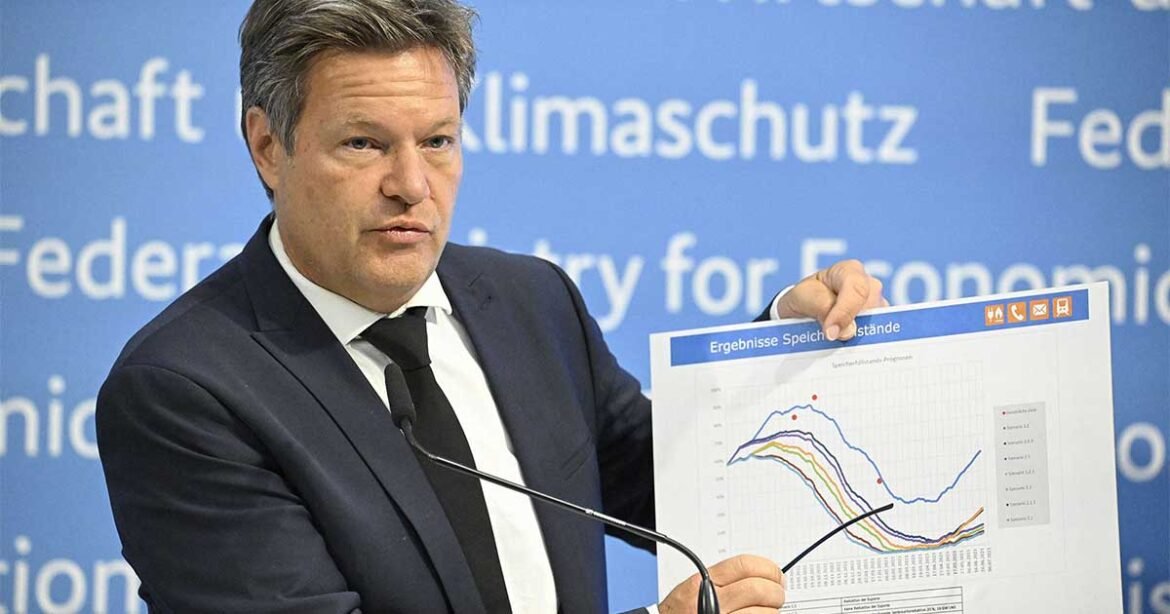Germany, as the largest economy in Europe and the second-most important trading partner of both Russia and Ukraine, has been greatly affected by the war in Ukraine. Prior to the war, the German economy was thriving, but now the outlook is much bleaker. The impact of the war has been most immediately felt in Germany’s trade and investment relations with Russia and Ukraine.
In recent years, Germany has maintained strong economic ties with Russia, exporting billions of euros worth of goods and investing heavily in the country. However, the situation has dramatically changed with the passage of time. Due to a combination of factors, including Western sanctions and a recession in Russia, German exports to Russia have plummeted, and significant investments have been written off.
Trembling effect on economy
According to reports, in 2020 alone, Germany exported goods worth €27 billion to Russia and invested a total of €25 billion in the country. However, due to the on-going political and economic tensions between Russia and the West, many German businesses have proactively withdrawn from the Russian market. This has led to a significant decline in exports and a loss of market share for German companies.
As a result of these facts, economic relations between Germany and Ukraine have also suffered. With German companies facing difficulties in the Russian market, they have been unable to invest and expand their operations in Ukraine either, as they previously had.
The war in Ukraine has had a significant impact on the German economy in various ways. One of the most prominent effects is the destabilisation of energy markets. Germany, being the largest economy in Europe, heavily relies on imported natural gas from Russia. The on-going conflict between Russia and Ukraine has disrupted energy supplies to Germany, leading to a rise in energy prices. This has put significant pressure on the country’s energy-intensive industries, leading to reduced production and increased costs.
Another significant impact of the conflict is inflation. The rise in energy prices has increased the cost of production for companies, leading to a rise in the prices of goods and services. Additionally, the instability in Ukraine has affected global commodity prices, further exacerbating inflation in Germany. The inflation rate in Germany rose to 8.7% in January 2023, which has resulted in a significant decrease in purchasing power for private households.
The war in Ukraine has also led to an increase in food insecurity in Germany. The country relies heavily on imports of food products, and the instability in Ukraine has disrupted food supply chains, leading to shortages and price increases. This has disproportionately affected low-income households, which spend a higher percentage of their income on food.
Private households are feeling the complexities of the conflict in the form of high rents and energy bills. The rising cost of living has put significant pressure on German households, leading to a decrease in consumer confidence and spending.
The German government has initiated relief packages for households and companies affected by the conflict. However, experts warn that the German economy is on the brink of recession, as it contracted in the last quarter of 2022. According to the head of the German Institute for Economic Research, the war in Ukraine has cost the German economy about €100 billion ($107 billion), or about 2.5% of its GDP.
Shrinking businesses and the influx of refugees
The war in Ukraine has caused significant losses of wealth for individuals and an uncertain future for businesses. The German Chamber of Industry and Commerce estimates that the conflict has led to a loss of wealth of around €2,000 for every individual in Germany. This translates to a total loss of about €165 billion ($176 billion) for the entire German population.
The Cologne Institute for Economic Research predicts that the war will erase around €2,000 of individual wealth in Germany in 2023 as well. The on-going conflict and its economic impacts have also led to a flight movement that has not existed in Europe since the 1940s. Migration expert Gerald Knaus warns that Germany and the entire EU must prepare for a significant influx of refugees from Ukraine, with around 17.5 million Ukrainians leaving their country since the beginning of the war. More than a million of them have already ended up in Germany, putting additional pressure on the country’s social and economic systems.
The on-going conflict has also led to widespread pessimism among German businesses. A November survey of 2,500 firms conducted by the German Economic Institute shows that about 40% of German companies expect business to decline in 2023, with another 35% expecting it to stagnate. Companies cited elevated energy costs, the price of raw materials, and inflation among the reasons for their pessimism. The on-going uncertainties surrounding the conflict and its economic impacts have led to a decrease in investment and a lack of confidence in the future among businesses.
The German government has initiated relief packages for households and companies affected by the conflict. However, experts warn that the German economy is on the brink of recession, as it contracted in the last quarter of 2022. The on-going conflict in Ukraine is expected to continue to strain the German economy, and counter-measures should be taken by the government and businesses to reduce further losses in the future.


